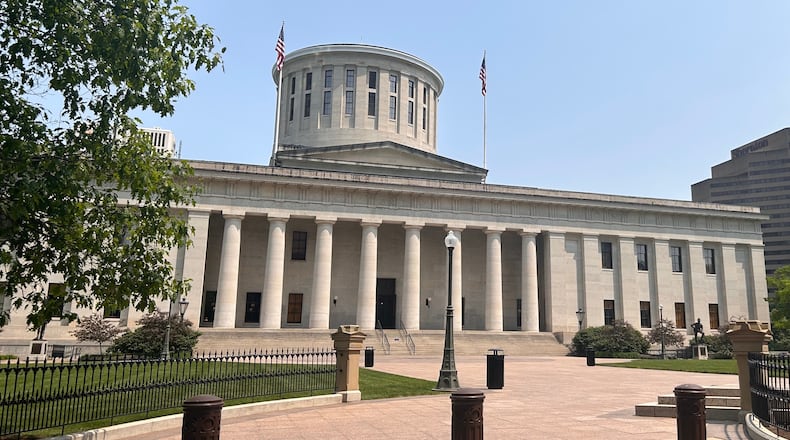SAPA aims to prohibit “a public office, public officer, or employee of the state or a political subdivision from enforcing federal law regarding firearms,” according to the House’s nonpartisan analysis of the bill.
Infractions of SAPA’s rules would open individual officers, and the local governments that employ them, to $50,000 in civil penalties for being found to enforce federal gun regulations.
The idea was first introduced to the Ohio House through H.B. 51, which cleared its committee but was never brought to the floor for an outright vote following firm opposition from Ohio’s prosecutors and police.
Throughout its legislative journey, local law enforcement argued that SAPA’s proposed rules and strict penalties would create a chilling effect that would, in effect, entirely dissuade Ohio’s state and local law enforcement agencies from partaking in both local-federal task forces and joint investigations that deal with federal gun laws.
Bill backers contended that SAPA would allow local law enforcement to partake in those activities as long as the federal gun regulation was in some way related to an underlying crime. But, pushes from prosecutors and various lawmakers to get an official clarification in writing were fruitless.
“The issue for us is that because it’s not clear, we’ve got to risk this lawsuit,” Ohio Prosecuting Attorneys Association Executive Director Lou Tobin told this outlet in December 2023. “(In order) to tell local law enforcement that they can cooperate, we’ve got to risk this lawsuit, and we just don’t know. And so the prosecutors’ advice is going to have to be just to err on the side of caution.”
The amendment ultimately failed on the back of arguments made by Rep. Bill Seitz, R-Cincinnati, who at one time was a proponent of SAPA but urged his colleagues Wednesday to vote against the amendment based on the fact that the Senate would not have any time to actually vet it.
“I contacted the Senate repeatedly today ... and got a clear and unequivocal statement from their policy director, from the member of their current leadership and from the president himself, that (they) are not going to consider this bill at all if this amendment goes into it,” said Seitz.
Seitz, the outgoing majority floor leader, also questioned why SAPA was never given the simple clarifying amendment it needed to attract majority support.
Outgoing House Speaker Jason Stephens, R-Kitts Hill, supported SAPA and made the ultimate decision to allow the vote to happen, which resulted in a rejection that is rarely seen in the Statehouse. Stephens told reporters after the vote that he felt it was worth a shot.
“At the end of the day, we wanted to make sure everybody understood what the vote was and what the discussion was. Sometimes, in a legislature you just have to go our and have a vote, so that’s what we did,” Stephens.
Before the vote, Senate President Matt Huffman, R-Lima, told reporters that he holds similar views on the bill to that of Rep. Cindy Abrams, R-Harrison, a former Cincinnati cop who vehemently opposes H.B. 51.
“Her explanation, which I think is a legitimate concern, is that it would remove federal law enforcement from being able to cooperate with local law enforcement. Especially in smaller counties, there are places where local law enforcement they don’t have, for example, the investigative ability, the forensic ability to analyze a lot of crimes,” Huffman told reporters.
“I don’t know about the details of it, but anything, I think, when we have serious crimes, when we have murders and gang activity, especially with our immigration issues right now, that removes the ability to have folks come in and take care of that, I think we have to have a lot of concern,” Huffman said.
For more stories like this, sign up for our Ohio Politics newsletter. It’s free, curated, and delivered straight to your inbox every Thursday evening.
Avery Kreemer can be reached at 614-981-1422, on X, via email, or you can drop him a comment/tip with the survey below.
About the Author

